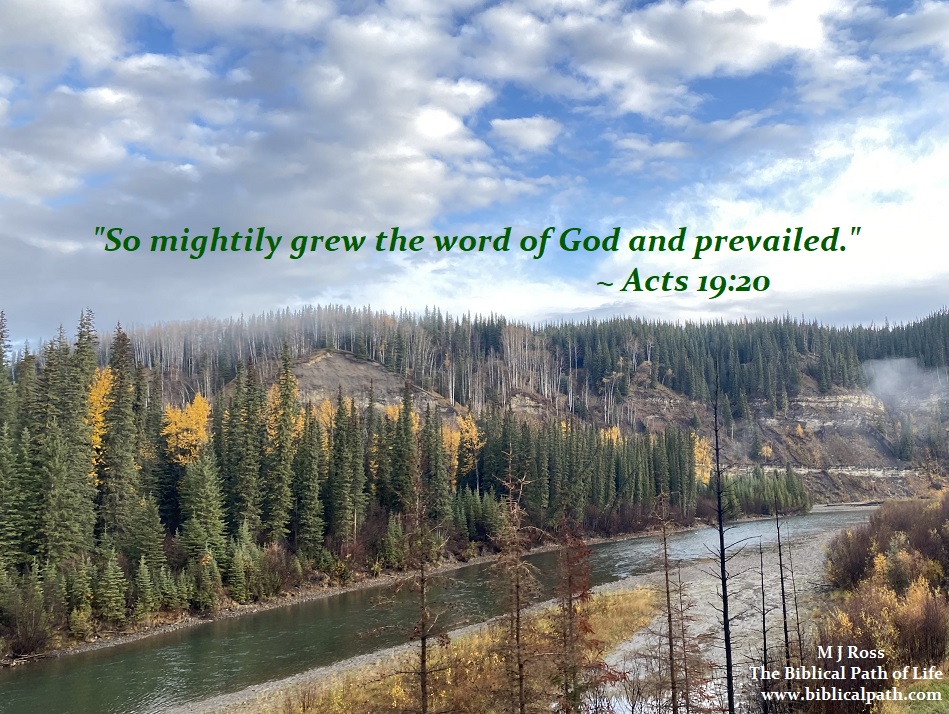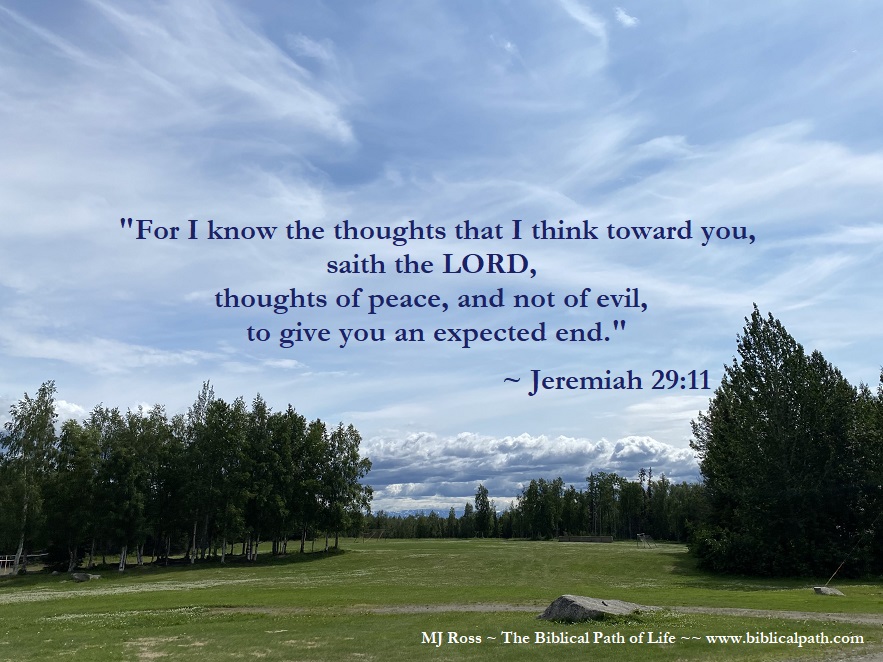
“So mightily grew the word of God and prevailed.”
Acts 19:20
The following is an excerpt from The Biblical Path of Life – Year Three, Quarter Two, Lesson 10:
“… God allowed Paul to heal people and eliminate evil spirits. With this came people who tried to do the same things. ‘13. Then certain of the vagabond Jews, exorcists, took upon them to call over them which had evil spirits the name of the Lord Jesus, saying, We adjure you by Jesus whom Paul preacheth. 14. And there were seven sons of one Sceva, a Jew, and chief of the priests, which did so. 15. And the evil spirit answered and said, Jesus I know, and Paul I know; but who are ye? 16. And the man in whom the evil spirit was leaped on them, and overcame them, and prevailed against them, so that they fled out of that house naked and wounded. 17. And this was known to all the Jews and Greeks also dwelling at Ephesus; and fear fell on them all, and the name of the Lord Jesus was magnified‘ (Acts 19:13-17). Vagabond means ‘ones who just wander.’ Exorcists means ‘one who binds by an oath; generally one who by incantation professes to expel demons.’ These men, seven of which were sons of the chief priest, used incantations, professing to cast out demons. Nevertheless, see that even the demons recognized that these men did not know Jesus (for Jesus was not in their hearts). When they tried to cast out the demons, those demons jumped on them, ‘so that they fled out of that house naked and wounded.‘ God used this to magnify the name of Jesus. ‘And many that believed came, and confessed, and shewed their deeds‘ (Acts 19:18). Deeds means ‘an act, practice; works; meaning conduct.’ This caused many to recognize that they were living in a lifestyle that opposed the preaching of Jesus. What did the people do about it? ‘Many of them also which used curious arts brought their books together, and burned them before all men: and they counted the price of them, and found it fifty thousand pieces of silver‘ (Acts 19:19). Curious arts means ‘a standard term for magic or black arts; pointing to the lengthy and various rituals involved in incantation ceremonies and the precision with which they were performed.’ The people understood that they must eliminate theses wicked things from their lives. Once they did, read what followed. ‘So mightily grew the word of God and prevailed’ (Acts 19:20). Many people were saved, and God’s Word was spread.
Paul continued his journey…
A Deeper Path: See some things we just cannot help but notice. God has always called people to turn from their sin toward Him. ‘If my people, which are called by my name, shall humble themselves, and pray, and seek my face, and turn from their wicked ways; then will I hear from heaven, and will forgive their sin, and will heal their land‘ (2 Chronicles 7:14). Theses were encouraging words for God’s people in King Solomon’s day.
God has always warned His people to avoid sin and people who sin. ‘14. Enter not into the path of the wicked, and go not in the way of evil men. 15. Avoid it, pass not by it, turn from it, and pass away. 16. For they sleep not, except they have done mischief; and their sleep is taken away, unless they cause some to fall. 17. For they eat the bread of wickedness, and drink the wine of violence. 18. But the path of the just is as the shining light, that shineth more and more unto the perfect day. 19. The way of the wicked is as darkness: they know not at what they stumble’ (Proverbs 4:14-19). God wants people to live a just life, not a wicked life. God also gave the following warning. ‘23. Keep thy heart with all diligence; for out of it are the issues of life … 27. Turn not to the right hand nor to the left: remove thy foot from evil’ (Proverbs 4:23, 27). It is important to protect each heart – for what is placed in each individual’s heart will come out in that person’s life. Avoid wickedness and evil.
As God allowed Paul to do many miracles and cast out evil spirits, there appeared a copycat: one who appeared to be able to do the same thing, until the evil spirit declared these men were false and jumped upon them. We, too, must be careful that something that has the appearance of good is not just a form of godliness, denying the power of Jesus (for these men had never known Jesus themselves). ‘Having a form of godliness, but denying the power thereof: from such turn away‘ (2 Timothy 3:5). Christians are to be cautious and check out and know for certain if that something is truly from God.
There is something else important to recognize. Once one becomes a Christian and begins to follow the Lord, that person must forsake all of the things of their past life. When Jesus called his disciples, they forsook all to follow Him. ‘And when they had brought their ships to land, they forsook all, and followed him’ (Luke 5:11). When the people in Ephesus believed in Jesus and confessed Him as their Lord, they had to remove their “deeds” from their sinful past. Remember what we read in Acts 19:19: ‘Many of them also which used curious arts brought their books together, and burned them before all men: and they counted the price of them, and found it fifty thousand pieces of silver.‘ It did not matter to them the monetary cost. They wanted to live a new life pleasing God.”
Have you trusted in Christ, forsaking the things of your past life to live a new life in Christ, following Him?
What to do to trust in Christ.


